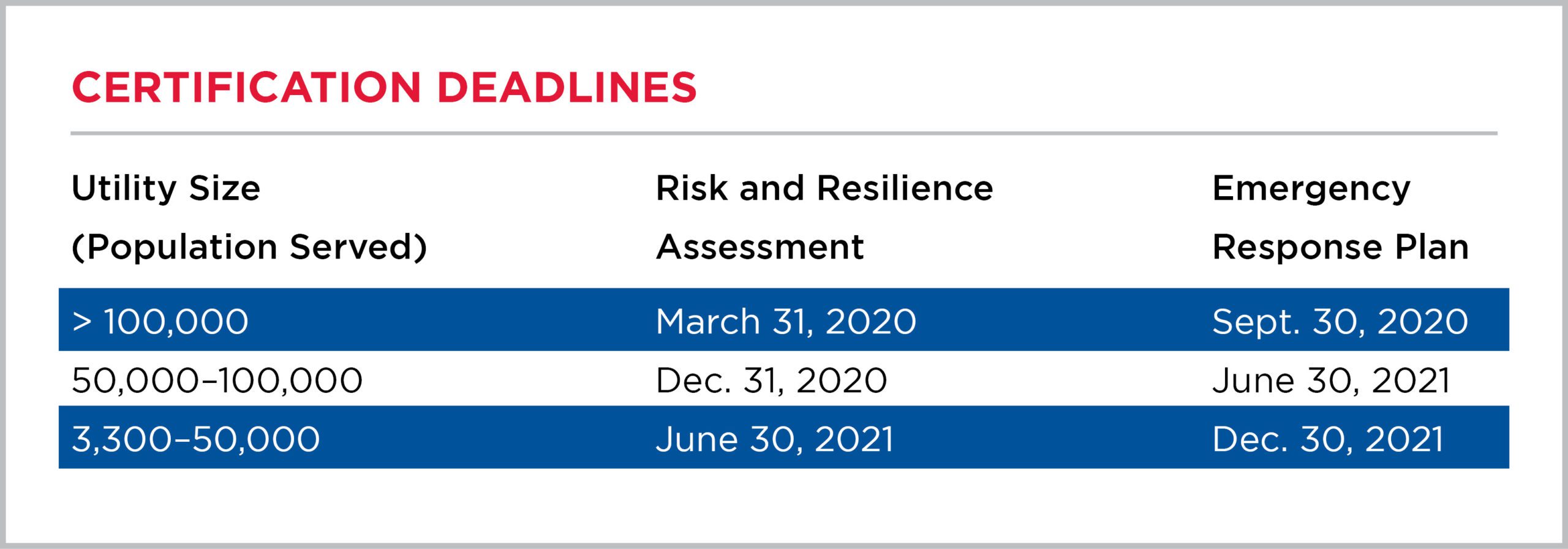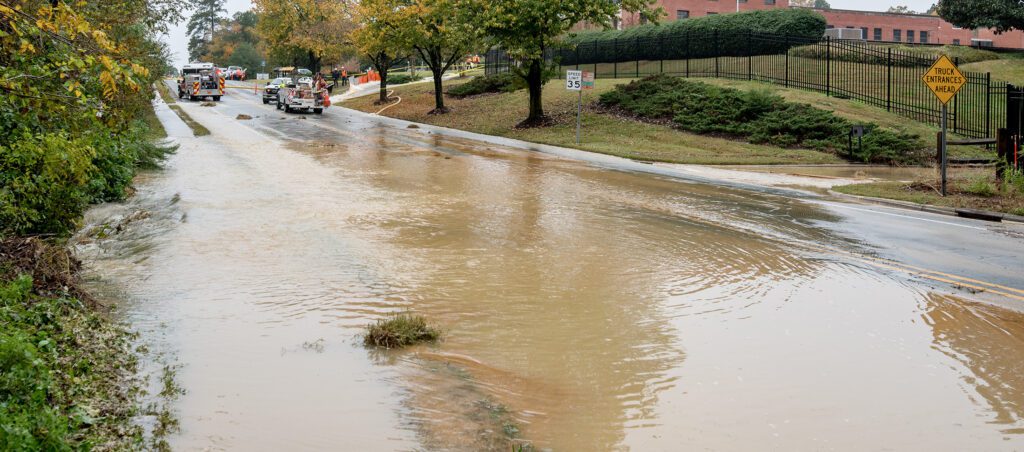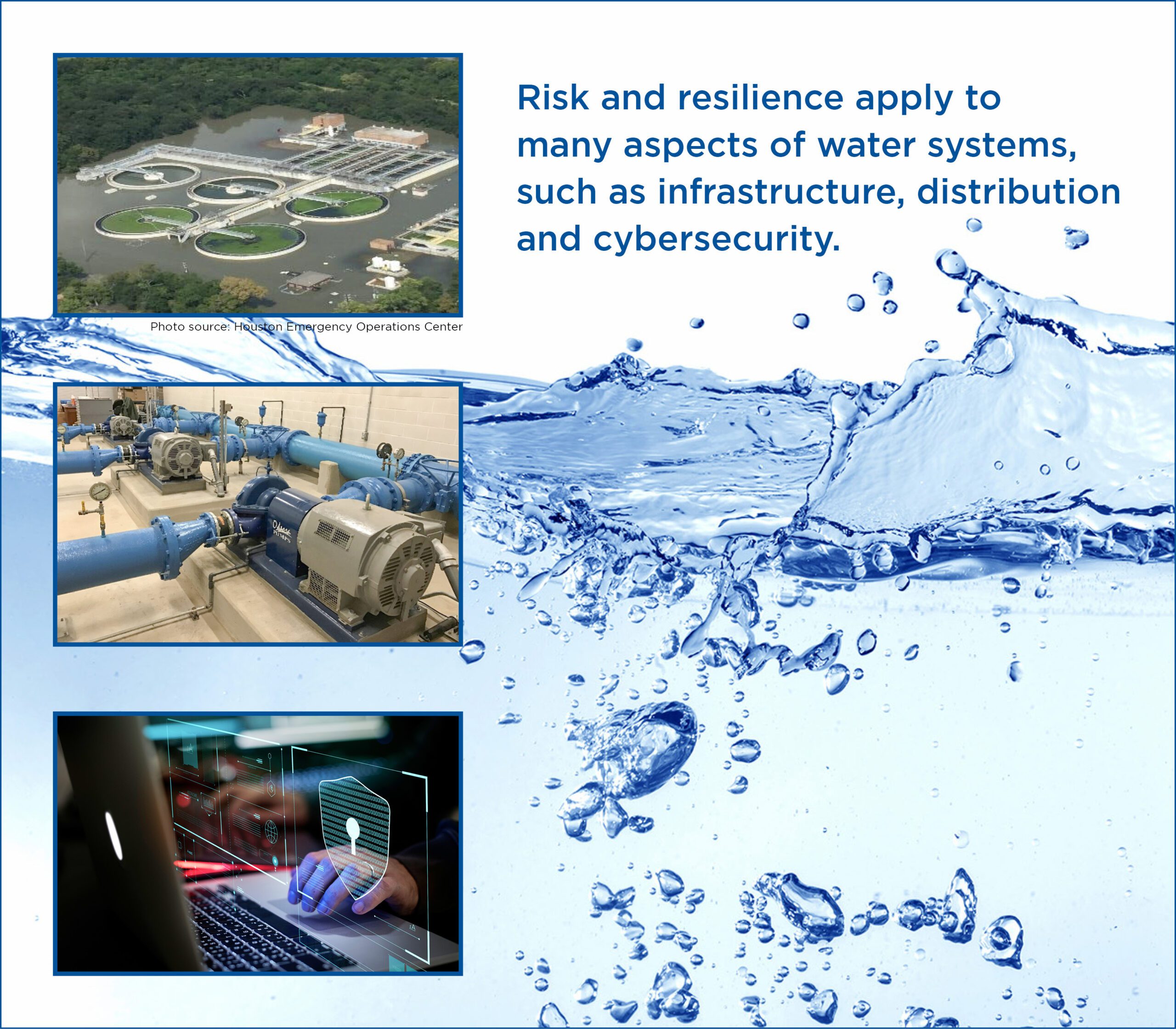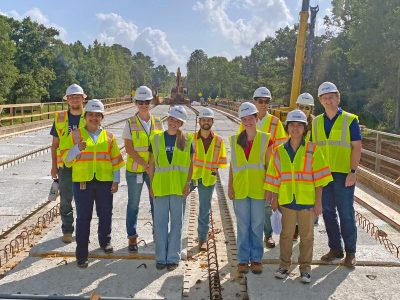Understanding Risk and Resilience Requirements for Water Systems
America’s Water Infrastructure Act (AWIA) of 2018 was signed into public law on Oct. 23, 2018, requiring all community and wholesale water systems serving a population of greater than 3,300 to certify to the Environmental Protection Agency (EPA) they have completed a risk and resilience assessment.
This requirement is outlined in Section 2013 of the AWIA. What does it mean?
A risk and resilience assessment includes evaluation of the following:
-
Risks to the water system from malevolent acts and natural hazards
-
Resilience of infrastructure
-
Monitoring practices of the system
-
Financial infrastructure of the system
-
Use, storage or handling of various chemicals
-
Operation and maintenance of the system
-
Locally driven evaluation of capital and operational solutions to improve the resiliency of water utilities
Additionally, the AWIA requires all drinking water system providers who serve a population greater than 3,300 to prepare or revise their emergency response plans (ERPs) to incorporate the findings of each risk and resilience assessment.
The table below shows the deadlines for certification of completion of the risk and resilience assessment and the emergency response plan by the size of the population served.
The risk and resilience assessment and emergency response plan must be reviewed, updated and recertified every five years.
Infrastructure resilience is important. A water main failure, which can occur for a number of reasons, can be disruptive for an entire community. (Shutterstock.com)
The Halff Approach
Halff Associates has built a strike team to respond to this need, offering a unique approach to help communities of all sizes meet this new federal mandate while enhancing their ability to withstand a variety of threats. We walk clients through the certification process with the EPA to ensure compliance with federal requirements in a timely manner.
Our approach merges the water utility operational experience of Frank Crumb, PE, who has nearly 40 years of experience in the public sector, with Kimberly Miller, AICP, who has more than a decade of resilience and hazard mitigation planning expertise. This unique operational perspective—in conjunction with a resilience planning focus and Halff’s experience with hazard mitigation planning for communities—allows us to complete the risk and resilience assessment and emergency response plan for any community efficiently and accurately.
Halff’s staff includes professionals who have completed the Utility Risk and Resilience Certificate Program through the American Water Works Association (AWWA). Our methods for preparing the risk and resilience assessment and updating the ERP will provide certain liability protections for water utilities by building on standards from the Support Anti-Terrorism by Fostering Effective Technologies (SAFETY) Act that are recognized as qualified anti-terrorism technologies by the Department of Homeland Security.
Our professionals also offer expertise in asset management and GIS, SCADA systems, utility financial management systems, cybersecurity, floodplain mapping and emergency response planning. This expertise, paired with Halff’s utility operational history, creates deliverables that not only meet AWWA criteria, but provide meaningful input on operational improvements.
Meet Our Team
Frank Crumb has nearly 40 years of water and wastewater utility experience in the public sector. As water director for the City of Fort Worth, he was responsible for a service area of more than 1 million people, 3,500 miles of water and wastewater piping, water treatment capacity of 400 mgd and wastewater treatment capacity of 166 mgd. Frank has a long history of working with other public entities such as the Tarrant Regional Water District and Trinity River Authority, as well as many wholesale water and wastewater customers who rely on Fort Worth for their service.
To learn more about the AWIA of 2018, how it affects your system and how Halff can assist you in meeting the federal mandate, please contact Senior Resilience Planner Sean Lahav at sLahav@halff.com.






